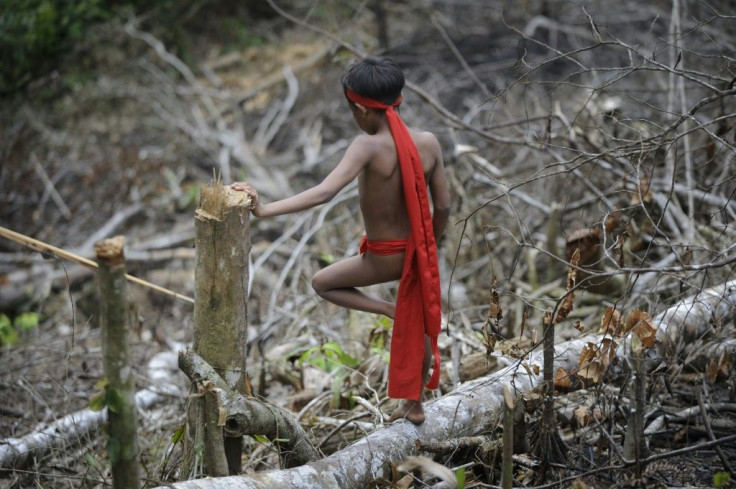Illegal Mining Surges On Yanomami Indigenous Land: Report
Illegal mining, a leading cause of environmental destruction in the Amazon rainforest, expanded 30 percent last year on protected Yanomami indigenous lands, devastating the equivalent of 500 football pitches, a report found Thursday.
The increase brought the total amount of land deforested by illegal miners on the Yanomami's reserve in northern Brazil to 2,400 hectares (nearly 6,000 acres), an area more than seven times the size of New York's Central Park, said the report by two indigenous associations.
Illegal gold and diamond mining are big business in the Amazon, and according to the report only accelerated on Yanomami lands in 2020, when the coronavirus pandemic led environmental authorities to scale back enforcement operations.
"The water is dirty, the river is yellow, everything is riddled with holes. Illegal miners are like pigs," said Yanomami shaman Davi Kopenawa, the head of one of the groups behind the report, the Hutukara Yanomami Association (HAY).
"They come in like hungry animals, looking for the riches of our land. It's expanding very fast. It's arriving right in the heart of Yanomami territory," he said in a statement.
Kopenawa said his community feared a conflict with the miners, who are often armed.

Last June, illegal miners shot dead two young Yanomami men, leading HAY to warn that tensions could escalate into a "cycle of violence."
Last month, miners attacked the indigenous village of Helepe, leading to clashes that left one indigenous man wounded and one miner dead, the group said.
The Yanomami, who are known for their face paint and intricate piercings, were largely isolated from the outside world until the mid-20th century.
They have a history of conflict with illegal miners dating back to the 1970s.
Together with diseases such as measles and malaria, the conflicts decimated the Yanomami population, which numbers around 27,000 today.
Indigenous authorities have also warned there is a danger of illegal miners with Covid-19 infecting members of the Yanomami.
© Copyright AFP 2024. All rights reserved.





















